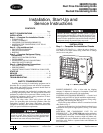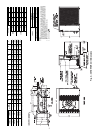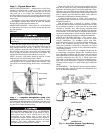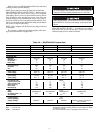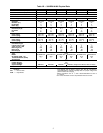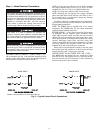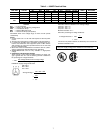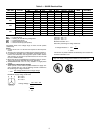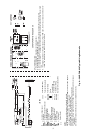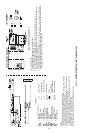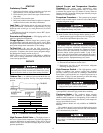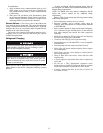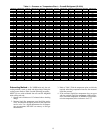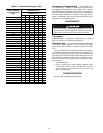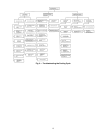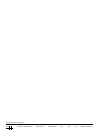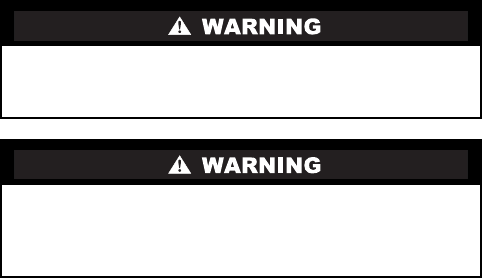
12
To troubleshoot:
1. Apply voltmeter across crankcase heater leads to see if
heater voltage is on. Do not touch heater. Carefully feel
area around crankcase heater; if warm, crankcase heater
is functioning.
2. With power off and heater leads disconnected, check
across leads with ohmmeter. Do not look for a specific re-
sistance reading. Check for resistance or an open circuit,
and change heater if an open circuit is detected.
Service Valves — The service valves in the outdoor unit
come from the factory frontseated. This means the refrigerant
charge is isolated from the line-set connection ports. To prevent
damage to the valve, use a wet cloth or other accepted heat sink
material on the valve before brazing.
The service valve cannot be field repaired, therefore, only a
complete valve or valve stem seal and service port caps are
available for replacement.
Refrigerant Charging
NOTE: Do not vent or depressurize unit refrigerant to atmo-
sphere. Remove and recover refrigerant following accepted
practices.
All units are shipped with the refrigerant charge listed on
the nameplate. See indoor unit Installation Instructions for ad-
ditional charge requirements.
NOTE: For 38HDF units only, charge to nameplate. See the
indoor unit owner’s manual for any additional charge
requirements.
Refer to Table 4 and consider the following when working
with Puron® refrigerant:
• Puron refrigerant cylinders are rose colored.
• Recovery cylinder service pressure rating must be
400 psig, DOT (Department of Transportation) 4BA400
or DOT BW400.
• Puron systems should be charged with liquid refrigerant.
Useacommercialtypemeteringdeviceinthemanifold
hose when charging into suction line with compressor
operating.
• Manifold sets should be 700 psig high side and 180 psig
low side with 550 psig low-side retard.
• Use hoses with 700 psig service pressure rating.
• Puron refrigerant, as with other HFCs, is only compatible
with POE oils.
• Vacuum pumps will not remove moisture from oil.
• Polyol Ester oils absorb moisture rapidly. Do not expose
oil to atmosphere.
• Polyol Ester oils may cause damage to certain plastics
and roofing materials.
• Wrap all filter driers and service valves with wet cloth
when brazing.
• A factory approved, liquid-line filter drier is required on
every unit.
• Do not use a TXV (thermostatic expansion valve)
designed for use with R-22 refrigerant. Refer to separate
indoor unit installation instructions for more details.
• If using a suction line drier, do not leave in place for
more than 72 hours.
To prevent personal injury, wear safety glasses and gloves
when handling refrigerant. Do not overcharge system —
this can cause compressor flooding.
Service valves must be fully backseated to close service
port. There is no Schrader valve at the service port, and
failure to backseat the valve could result in loss of system
charge or personal injury.



